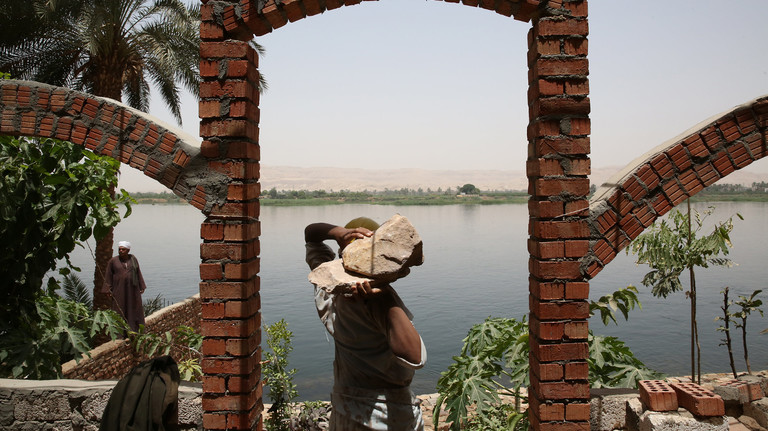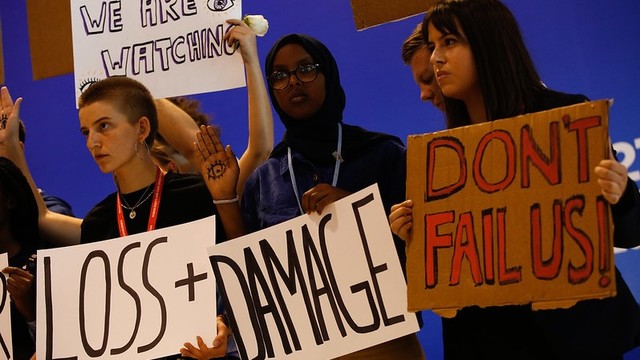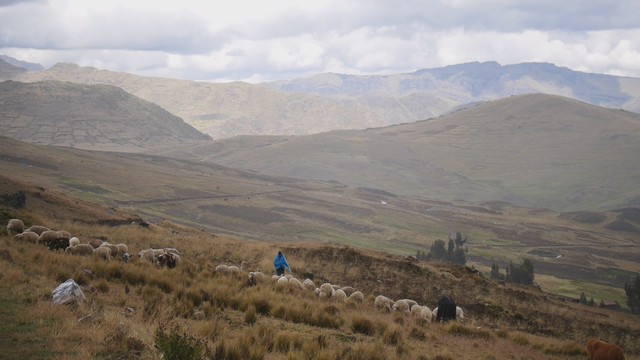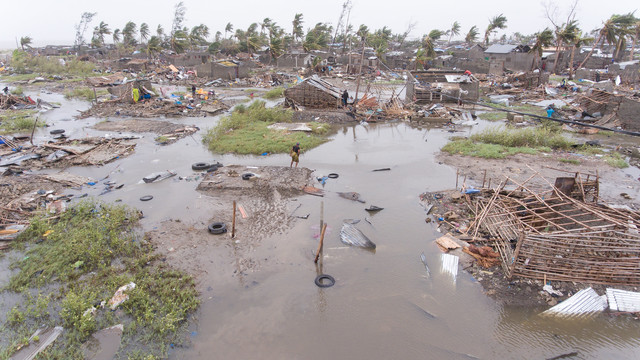The Global Goal on Adaptation: how to make the GlaSS work programme inclusive
A series of experts discussed how the Glasgow-Sharm-el Sheikh work programme on the Global Goal on Adaptation can be fair and inclusive.

A man carries large rocks along a riverside; part of construction work to build stronger river banks along the Nile river to protect it from erosion (Photo: Dominic Chavez/World Bank via Flickr, CC BY-NC-ND 2.0)
In November 2021, the UN climate negotiations (COP26) established the Glasgow-Sharm el-Sheikh work programme (GlaSS) (PDF) on the Global Goal on Adaptation (GGA). This decision was a successful outcome of COP26 and represents a significant step towards progressing the GGA – along with other adaptation matters – into concrete actions.
Little is known yet of the content and format for the two-year work programme, which will hold the first of its four official workshops in early June.
For example, the GlaSS underlines that the programme and the GGA must be country-driven, yet that other actors must be included in the process.
How civil society and local voices will be heard throughout this process is still to be determined. This will be critical for the decisions and steps taken during the GlaSS to be representative of the whole of society. Without diverse voices being heard and integrated, the GlaSS will remain an empty exercise.
Parties have freshly submitted their views on how to achieve the eight GlaSS objectives at the end of April, setting out their priorities and vision for the GlaSS. Ahead of the first official GGA workshop, this webinar provided an opportunity to discuss the perspectives and priorities of developing country stakeholders on how to best achieve a fair and inclusive GlaSS.
This webinar welcomed the commentary of the UK and Egypt COP presidencies, before exploring the views of panellists on the priorities and processes that can ensure the GlaSS, and ultimately the GGA, to be most inclusive. This was followed by a question-and-answer session during which participants shared their thoughts and questions with the panel.
About the speakers
- Sindy Singh is a climate change advocate from Trinidad and Tobago, and for the Small Island Developing States.
- Maria del Pilar Bueno is a professor at the National Council of Scientific and Technical Research of Argentina and National University of Rosario, and an ex-member of the Adaptation Committee.
- Mokoena France is director at the Lesotho Meteorological Services, and co-coordinator on adaptation for the Least Developed Countries Group.
- Mariam Allam, climate adaptation negotiator for the incoming COP27 presidency, and Morgane Chiocchia, climate adaptation negotiator for the outgoing COP26 UK presidency, provided a commentary framing the webinar.
- Funanani Muremi, deputy director, international climate change at the department of Forestry, Fisheries and the Environment in South Africa
- The webinar was moderated by Emilie Beauchamp, senior researcher working on monitoring, evaluation and learning of adaptation at IIED.
Event coverage
Monitoring, evaluation and learning officer Clarisse Marsac and climate change researcher Lilian Motaroki have written a report of the event focusing on how civil society and local voices can incorporated in practice to ensure the GlaSS process is inclusive.
A recording of the event also is available below or on IIED's YouTube channel, where viewers are also able to use timestamps to go straight to specific speakers.
IIED events newsletter
Sign up to our mailing list for updates and invitations to events throughout the year, including webinars, critical themes and debriefs.
Contact
Katherine Shepherd (katherine.shepherd@iied.org), coordinator, IIED's Climate Change research group




